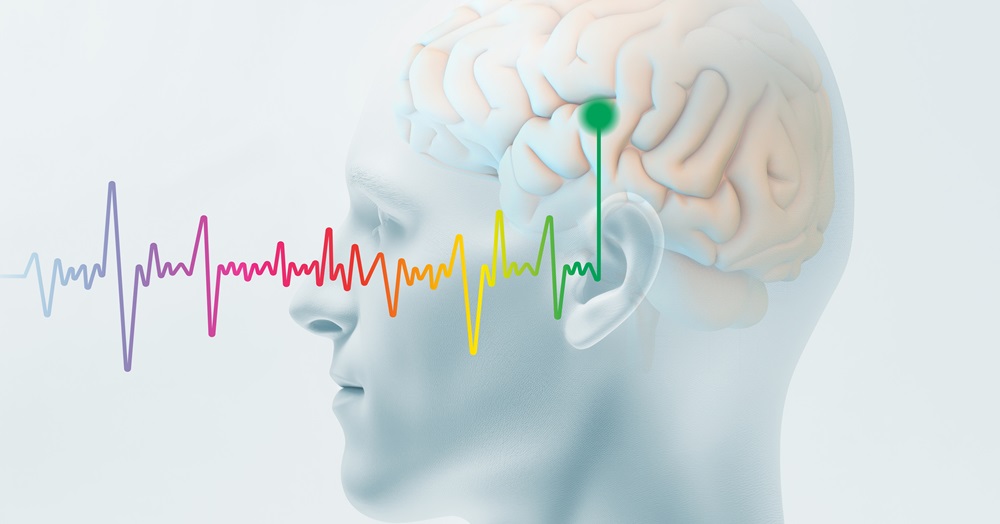School of Health Professions Alum: Journey to Ototoxicity Research

The American Academy of Audiology defines ototoxicity as “damage to the hearing or balance organs that occurs after exposure to medications or chemicals that affect the inner ear.” The side effects can often damage hearing, balance, or both.
A native of El Paso, Texas, Amanda Chiao, AuD, PhD, CCC-A, is an Assistant Professor of Surgery at the Texas Tech University Health Sciences Center in El Paso and a Pediatric Audiologist at El Paso Children’s Hospital. Throughout her career, she has researched ototoxicity and its impact on people with substance use disorders (SUDs).
Chiao successfully secured a large-scale, multi-site R01 grant from the National Institutes of Health–National Institute on Deafness and Other Communication Disorders that supports research into the effects of SUDs on hearing and vestibular function and aims to pinpoint potential predictive risk factors that increase the likelihood of ototoxic effects among individuals with SUDs.
We sat down with Dr. Chiao to discuss her background in audiology, her ototoxicity research, and how coming home to El Paso has reshaped her approach to patient care and research.
EARLY INSPIRATIONS AND CAREER PATH
Growing up in her hometown of El Paso, Chiao didn’t envision herself doing the work she is so passionate about today. Although her parents were both registered nurses, and she knew she wanted to work in the medical field in some capacity, she also loved journalism and storytelling. In fact, one of her first dream jobs was as an NBC News correspondent before eventually deciding to pursue a Doctor of Audiology degree at TTUHSC.
“I started my AuD program because it was in the medical field, and I liked the idea of investigating something and solving a problem,” Chiao said. “That's what audiology is, specific to hearing and vestibular and/or balance, but you're essentially doing various tests to diagnose something, and that is exciting to me.”
Chiao initially struggled with how to incorporate her love for storytelling into her career in the medical field. Early in her audiology program, she wasn’t sure she had chosen the right path until her mentor in the audiology program suggested she look into the Doctor of Audiology and the Doctor of Philosophy dual track.
“During that time, I began to see these two worlds merge with what I wanted to do,” Chiao said. “My clinical work allows me to provide that immediate direct patient care. My research and my Ph.D. allow me to make an indirect long-term impact, and I get to tell stories. These stories might be through a manuscript, or when you write a grant, you're telling a story and have to sell it. So it's cool to see that maybe I'll leave an imprint with my words down the line.”
Chiao would go on to earn her Au.D. in 2014 and Ph.D. in vestibular function and assessment in 2016, both from TTUHSC.
As a faculty member at the University of Nebraska-Lincoln, Chiao partnered with Dr. Michelle Hughes to explore the relationship between substance misuse and ototoxicity. The team published a detailed systematic review, finding over 60 case reports and small-scale studies dating back to the 1960s showing that substance misuse can lead to ototoxicity similar to the effects observed from chemotherapy and certain antibiotics.

The side effects of ototoxicity can often damage hearing, balance, or both.
“Ototoxicity is the medical term that we use to describe the side effects of a certain drug or medication that your doctor typically gives to cure something else,” Chiao says. “The side effects of ototoxicity are often hearing loss, tinnitus, vertigo, and unsteadiness. In most cases, it is an unfortunate side effect that comes with an important medication that your body needs for another health reason. For example, we see other toxicity most commonly associated with things like chemotherapeutics. Since the 1960s, there have been case reports that have talked about how substance misuse or overdosing on heroin or methamphetamines can result in a similar type of ototoxic effect.”
Securing a two-year, $25,000 grant from the University of Nebraska–Lincoln’s Rural Drug Addiction Research Center, the team collected pilot data on comprehensive hearing and balance assessments. They examined individuals with substance use disorders (SUDs) and an age-matched control group without SUDs, and their results showed that substances, especially alcohol and illicit drugs, adversely affect hearing and balance, which can disrupt a person’s social integration and everyday tasks such as communicating and driving.
BACK HOME IN EL PASO
Following her time in Nebraska, Chiao had the opportunity to return to El Paso, where she could not only further her research and be closer to family but also dig deeper into her roots and reshape her approach to research and patient care.
“I self-identify as a Latina, and in my training and early jobs, that was never in the forefront of my brain,” Chiao said. “But now, coming back and working here, it is a privilege that my identity and having grown up here allows me to serve my patients differently. When I serve my kids here in El Paso, I'm thinking more about our international barriers, I'm thinking about their health insurance, I'm thinking about cultural differences that only we understand, I'm thinking about cultural bias. I'm thinking about all these things that might change my clinical plan and go against the “textbook” scenario we learned in graduate school.”
She says that while her experiences growing up on the border have made her approach patient care more intuitively, it has also added more emphasis on human connection in her research.
“My approach to research is more about my community, a largely medically underserved eco-system, and bringing it back to people,” Chiao says. “I find myself asking, does this research question matter to my community? Is it something that fills a gap in El Paso? Does it matter to people in El Paso? Does my community trust me to do research here?”
“It's more about a human connection, in my opinion. In research, we don't always like to talk about human connection in the same sentence because it's not ‘science,’ but I am dedicated to changing that narrative in my work and aim to tell those ‘stories’ for the most vulnerable.”
A focus on diversity and the human element is apparent in her current research through the NIDCD grant. While she serves as the project’s Principal Investigator, with TTUHSC in El Paso being the main site, she is collaborating with researchers at the University of Nebraska-Lincoln and the University of Illinois-Chicago. Already one year into the five-year grant, the team hopes that being a multi-site study will help them collect over 1,000 people of different regional and racial backgrounds.
“We wanted to have a diversity piece in our grant, so that’s a big emphasis for us,” Chiao said. “We are hopeful that that information will also scaffold so we can be much more precise about what risk factors and strategies work best in one diverse region versus others.
The grant funds research on how SUDs affect hearing and vestibular function, intending to identify risk factors such as health comorbidities, gender, sex, and substance use patterns that might heighten the risk of hearing and vestibular impairment in individuals with SUDs.
“We want to develop a risk model to determine who's most at risk for developing hearing loss or vestibular loss. That way, we can help clinicians determine who they should keep their eyes on, who they should screen, and who they should monitor long-term. There is a lot of literature to show that people with substance use disorders are largely marginalized and vulnerable populations that get lost in the healthcare system. Many of them don't have access to health insurance. Some lack access to basic needs like housing, and many have co-existing mental health conditions. If we can figure out who's at risk, then maybe we can help modify their risks to prevent more subsequent damage to their hearing and balance.”
Made up of researchers from the three different sites, the research team also includes biostatics experts from Texas Tech University and experts in SUDs from New York University Grossman School of Medicine and the University of Nebraska-Lincoln Rural Drug Addiction Research Center. The team is made up of 90% women.
“That is an important thing to me because there's not enough women and female scientists doing this type of high-level work amongst all of the other aspects of our day to day,” Chiao said. “We're mothers, we're partners, we're surgeons and audiologists, and we're doing excellent research together. I'm so grateful to be able to talk about this project because it bolsters them and women in STEM.”
LOOKING AHEAD
Chiao says the team wants to be the first to look globally at whether SUDs cause ototoxicity. If their research shows that they have an influence, they hope that the information will scaffold into their next project, which would focus on developing accessible and practical interventions.
“When I work with people with substance use disorders, they have far more comorbidities that they're dealing with, and it does not always feel good to say, ‘And you have hearing loss’ because now they're left with this other burden of knowing they have something else, especially when they're in recovery, and they're trying to reintegrate back into society,” Chiao says. “We want to be mindful that if we diagnose something, we have a solution. We would like to develop more streamlined, accessible screening tools that can be used by community centers and rehab centers where these people probably feel more comfortable going. From there, we want to develop interventions for hearing loss and vestibular loss that are also accessible. Hearing aids are not cheap. They're not something that everyone can afford. A vestibular specialist is not accessible for everyone, so we want to consider at-home or ‘over the counter’ like strategies that can be more community-based driven.”
Related Stories
The John Wayne Cancer Foundation Surgical Oncology Fellowship Program at Texas Tech University Health Sciences Center Announced
TTUHSC is collaborating with the John Wayne Cancer Foundation and has established the Big Cure Endowment, which supports the university’s efforts to reduce cancer incidence and increase survivability of people in rural and underserved areas.
Making Mental Health a Priority in the New Year
Sarah Mallard Wakefield, M.D., a psychiatrist with Texas Tech Physicians, talks about strategies to combat widespread and growing anxiety.
TTUHSC Dean to be Inducted into the National Academies of Practice as Distinguished Fellow
Gerard E. Carrino, Ph.D., MPH, dean of the TTUHSC Julia Jones Matthews School of Population and Public Health, will be inducted into the National Academies of Practice (NAP) as a Distinguished Fellow of the Public Health Academy.
Recent Stories
National Academy of Inventors Names TTUHSC Faculty Senior Members
The National Academy of Inventors (NAI) has designated two current and one former TTUHSC faculty researchers as Senior Members.
The John Wayne Cancer Foundation Surgical Oncology Fellowship Program at Texas Tech University Health Sciences Center Announced
TTUHSC is collaborating with the John Wayne Cancer Foundation and has established the Big Cure Endowment, which supports the university’s efforts to reduce cancer incidence and increase survivability of people in rural and underserved areas.
TTUHSC Receives $1 Million Gift from Amarillo National Bank to Expand and Enhance Pediatric Care in the Panhandle
TTUHSC School of Medicine leaders accepted a $1 million philanthropic gift from Amarillo National Bank on Tuesday (Feb. 10), marking a transformational investment in pediatric care for the Texas Panhandle.
